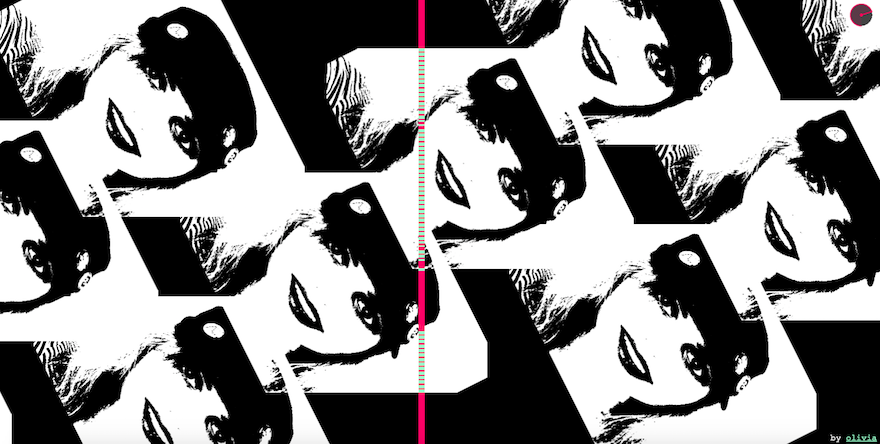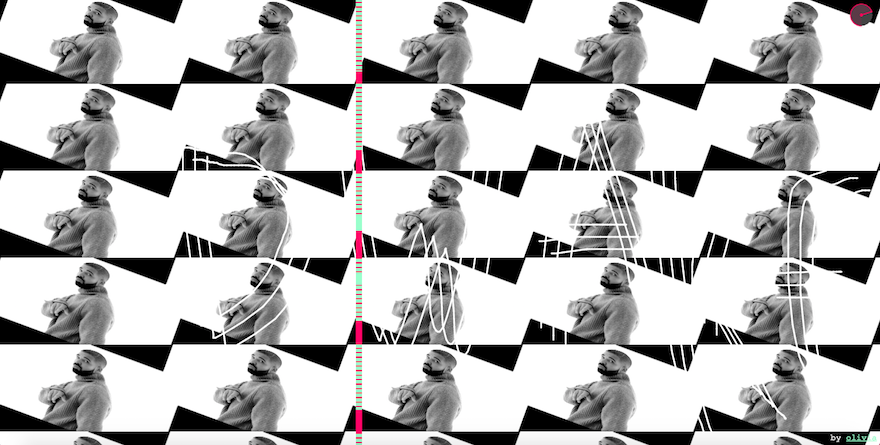Pixelsynth is a new web app from coder Olivia Jack that allows anyone to compose songs simply by drawing or uploading pictures. It’s available for free over on her Github, and it works by setting music to images in a method similar to a commonly used scientific and musical tool called a spectrogram. Like how sheet music is a language for representing different pitches of notes, spectrograms are visual representations of the spectrum of frequencies that make up a sound. Every song has a spectrogram that can be derived from it, and conversely, any image can be plugged into a spectrogram to create a series of sounds to go along with it. Essentially, all images sound like something.
Take, for instance, electronic music producer Aphex Twin’s 1999 single “Widowlicker.” I still remember when an old pot-loving former roommate of mine showed me the spectrogram for this song. Towards the end, the normal flow of music stops as a sort of theremin style whine takes its place. In the spectrogram, this is actually reflected as a picture of Aphex Twin’s own face, which he had inserted into the song as a signature of sorts. Like Aphex Twin, Pixelsynth allows you to find out what your own face (or your dog’s face, or your boss’ face, or any image you like) sounds like.
The app comes with a variety of options, allowing users to upload photos, repeat them in a checkerboard pattern, change their width and contrast, draw over them, and manipulate the drawings in a similar way. It also comes with a number of premade backgrounds, as well as the ability to draw without any backgrounds. All the while, a line moves across the screen from left-to-right, turning sketches into sound as they are drawn.
Here’s one where I messed around with a picture of my face for a bit. Go ahead and plug it in to Pixelsynth to hear what it sounds like.

Here’s one with Drake, because of course we had to do one with Drake.

To hear what your face sounds like, you can play Pixelsynth in your browser. For future updates on Olivia Jack’s work, follow her on Twitter.